1. Colour code: Kelvin - Orange Zi Feng - Blue Chang Da - Delicia - red Yu Rong - Purple
2. Opposing Point 1: Prolonging life may also prolong the suffering of the patient, thus suffering from a poorer quality of life.
2.1. Probable Counter point: -Some may rather suffer pain now in the hope that in lieu of rapidly advancing medicine, there may be the possibility of a cure in the long term - Some prolong life because they have unfinished dreams
2.2. eg. kidney failure patients would have to go for dialysis regularly to cleanse their blood. it is a process that would cause extreme discomfort to the patient going through it. However, it is a necessity for the patient to continue to live on as if the patient decides to stop going through dialysis, his organs will slowly stop functioning and will die a slow and painful death.
3. Opposing Point 2: Medical Science should improve the quality of life instead of solely based on prolonging life.
3.1. In some cases, prolonging life may not improve the quality of life of the patient.
3.1.1. however, who can define if the quality of life is improved?
3.1.2. Example: A cancer patient who opts for chemotherapy will have to suffer from side effects like vomiting due to a weak immune system.
3.2. Preimplantation genetic diagnostics
3.2.1. A new biotechnological technique. Recently in the UK it's been used to produce the first embryo that is free of a breast cancer gene. Thus the child is in some way getting a prolonged life, due to a lesser chance of breast cancer. child to be free of a breast cancer gene.
3.2.1.1. ethical issues involved?
3.2.1.2. quality of life somewhat improved too
4. Opposing point 3: Mercy killing in some cases whereby the patient is suffering intense pain will need the use of science to end one's life painlessly.
4.1. who will decide if one's life should be ended?
4.1.1. Oddly similar to playing God. They get to decide who dies and who lives on. (omniscient)
4.1.2. Doctors and nurses who know the most about the patient's conditions (i.e. whether or not there are any hopes of recovery for the patient)
4.1.3. Family members, especially the biological parents, who are closest to the patients. Parents because they are the ones who brought the child to life in the first place.
4.2. Eg Euthanasia
4.2.1. The intentional killing by act or omission of a dependent human being for his or her alleged benefit.
4.2.2. Arguments For Euthanasia: It provides a way to relieve extreme pain It provides a way of relief when a person's quality of life is low Frees up medical funds to help other people It is another case of freedom of choice Arguments Against Euthanasia: Euthanasia devalues human life Euthanasia can become a means of health care cost containment Physicians and other medical care people should not be involved in directly causing death There is a "slippery slope" effect that has occurred where euthanasia has been first been legalized for only the terminally ill and later laws are changed to allow it for other people or to be done non-voluntarily.
4.2.3. Places that legalized euthanasia: Countries - The Netherlands, Belgium, Switzerland (they do not punish those who perform euthanasia) States - Washington, Oregon Montana
5. Supporting point 1: The original purpose of inventing and researching medicine was to cure people of diseases and enable them to live a longer and fuller life.
5.1. Due to the advancement of technology and medicine, man are able to live longer lives and age gracefully as the improved medical science is able to lessen the pain of patients.
5.2. However, times have changed and medical science nowadays also involve ending lives. It is evident that the original purpose is now blurred and changing.
5.2.1. Example: Abortion Due to increasing numbers of unwanted pregnancies in recent times, many pregant ladies choose to opt for abortion to remove the unborn child. Therefore, abortion is becoming more widely accepted as a medical surgery, despite the fact that it is going against the orignal purpose of medical science.
6. Supporting point 2: The first duty of a doctor is to save lives, not take it. (refer to Hippocratic Oath)
6.1. Thus, medical Science is 'oath-bound' to abide by these 'laws' of science, they have to prolong life at all cost
6.2. Possible Counter: How relevant is this in today's society?
6.2.1. The two extremes ends of the human population are getting more publicity than ever (those who don't want to suffer [i.e. euthanasia, abortion etc] and those who go all lengths to ensure that they will survive all diseases [i.e. cryonics].
6.2.2. How relevant is an oath that is centuries old in the 21st century?? Should modifications be made? How far are the doctors supposed to go in helping preserve their patients' lives [We are not talking about individual morals and beliefs here, not even branching in what the society believes and wants!]
6.2.3. Conflicts: -Old fashioned 'boundaries' vs 'new-fashioned' thinking -Conservative SOCIETY vs liberal INDIVIDUALS!
